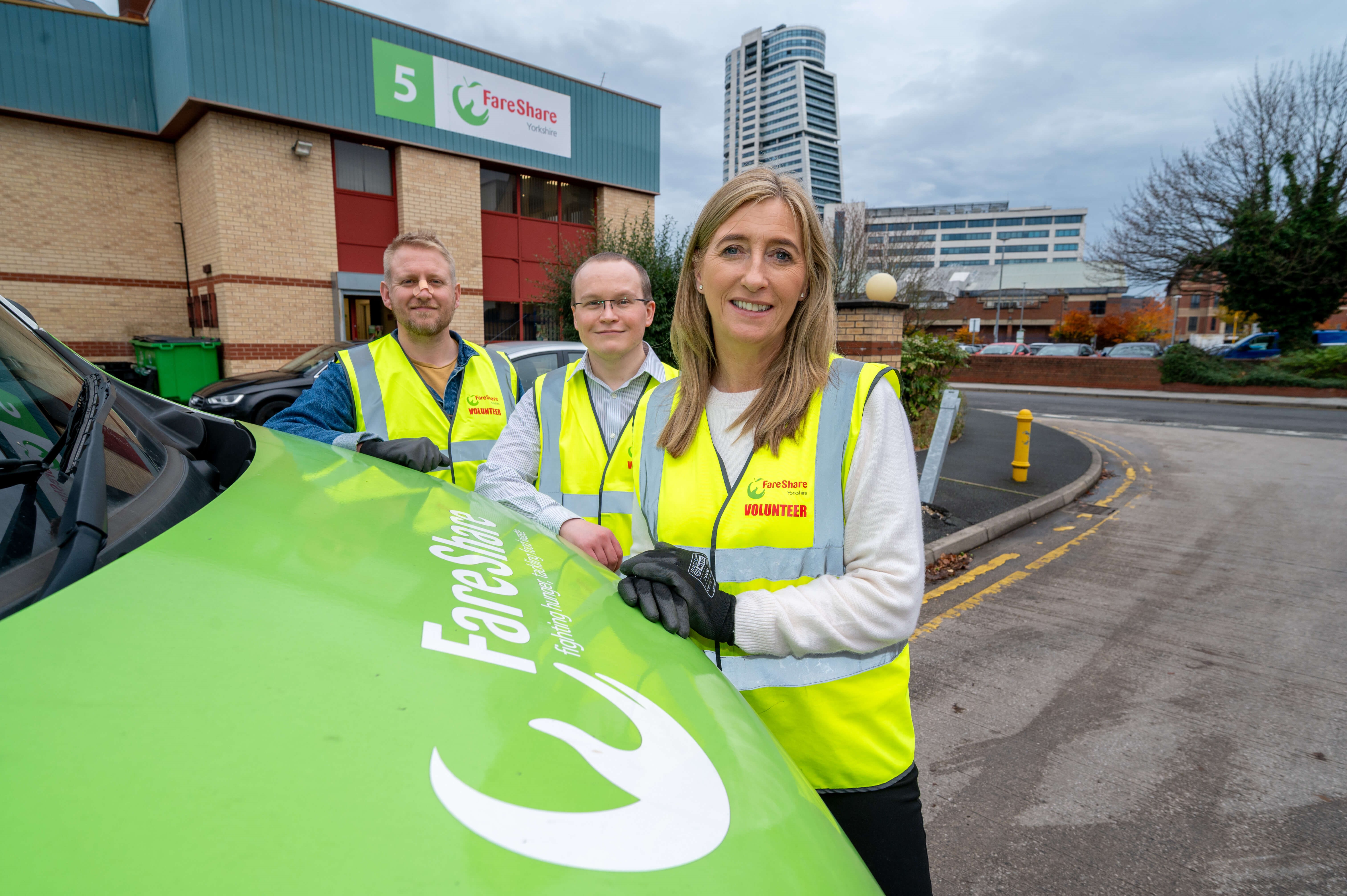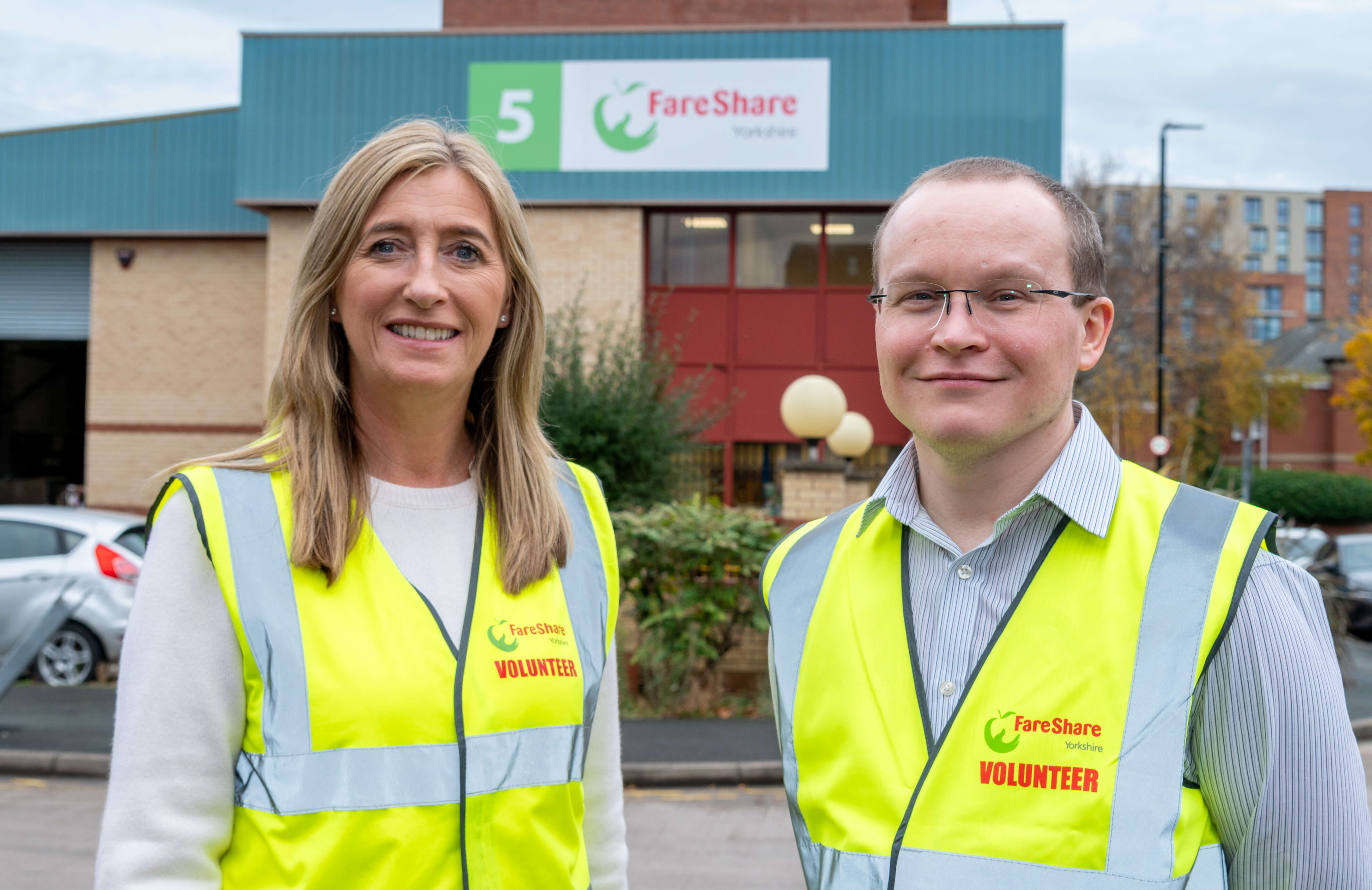Yorkshire Building Society announces 2021 results - Mutual's record support for borrowers and savers delivers strong results
Yorkshire Building Society today announces its results for 2021 and details its financial performance and work to support customers, colleagues and communities.
Financial highlights:
- Provided 75,732 mortgages (2020: 72,172) to help people find a place to call home and supported a record number of first-time buyers.
- Mortgage balances increased to £41.9bn (31 December 2020: £38.8bn), the highest in our history.
- Paid 0.32% above the market average to savers which delivered an additional £107m of interest to them[1].
- Saving balances increased to a record £35.5bn (31 December 2020: £33.4bn).
- Core operating profit of £297.3m[2] (2020: £170.5m).
- Statutory Profit Before Tax of £320.0[3] (2020: 161.3m).
- Common Equity Tier 1 ratio increased to 16.8% (31 December 2020: 16.7%).
The full financial results are included in the appendix below.
Stephen White, Interim Chief Executive of Yorkshire Building Society, said:
I am delighted to report that in a challenging year for the economy when many members and customers have faced very difficult circumstances we have been able to help more people with their key financial needs than ever before.
Our mutual model has helped us to deliver record savings and mortgage balances allowing us to both increase our savings rates and help a record number of first-time buyers.
The strength of our mortgage book has helped us to support borrowers facing serious financial difficulty and, at a time of rising house prices, release some of our provisions.
At the same time, the ongoing work to improve the efficiency of the Society and reduce cost alongside good commercial judgments and disciplines has meant that core operating profit increased to £297.3m, allowing us in turn to increase our capital and reserves and reinvest for the long term.
All of this has only been possible because of the hard work and dedication of our highly engaged colleagues and I’m extremely proud and grateful to each and every one of them. They have worked tirelessly in 2021 to meet every challenge and support our customers and their resilience has once again been outstanding.
Our role as a mutual is to deliver real help with real life and help people find a place to call home by providing mortgages, funded by our members’ savings. I’m particularly pleased that 2021 was a record year in terms of our support for first-time buyers, who are less well served by the wider market.
Supporting our savers at a time of historically low interest rates has been a key commitment of ours and while the Bank of England increased base rate to 0.25% in December last year, the first increase since August 2018, 2021 was another tough year for savers. To deliver value to members and ensure we share our success, we further increased our rates above the rest of the market average and rewarded our loyal members.
I am also very proud to report that our deep-seated conviction to engage with and support the communities we serve has continued and developed to ensure we further support those people facing challenges around skills, employment, financial education and wellbeing.
Mortgages
Throughout the year the Society provided 75,732 mortgages and a total of £10.3bn in new funding of which 36% (£3.6bn) was to first-time buyers. As a result, total mortgage balances increased to £41.9bn which is the highest in its history.
While the number of mortgage approvals fell in October, following the stamp duty holiday coming to an end in September, they grew again in November and December and exceeded pre-pandemic averages. Despite rising house prices demand remains strong although larger properties with more outside space proved more popular as people reassessed their needs following a year of lockdowns.
The Society remains committed to helping first-time buyers, who are less well served by the wider market, find a place to call home and was the first lender to re-enter the 95% mortgage market 2021. This, combined with other support such as Shared Ownership lending, resulted in a record 42,000 people having a place to call home for the very first time.
Savings
The Bank of England raised base rate to 0.25% in December last year having reduced it to a historical low of 0.10% in March 2020. A key element of the Society’s purpose is to deliver value to members which in turn supports their financial resilience.
Yorkshire Building Society increased the minimum rate on the vast majority of its variable savings accounts to 0.5% even before the base rate rise in December last year and further increased rates to a new current minimum of 0.6% last month. Our member loyalty programme returned an additional £41m1 to savers through a combination of targeted products and increased rates.
The Society launched a number of regular savings accounts to reward loyal savers, help create a savings habit and build financial resilience. These include a market leading 3.5% Regular Saver, a Christmas Regular Saver and prize draw account which, in addition to paying double current bank base rate, also enters savers into a monthly draw to win £1,500 to cover the average household monthly bills.
Throughout the year, the Society paid 0.32%1 above the rest of the market average (31 December 2020: 0.17%), which means savers have benefited from an additional £107m of interest in total and savings balances have reached an all-time high of £35.5bn (December 2020: £33.4bn).
Supporting customers and colleagues:
The Society continues to prioritise its customers and colleagues by keeping customers in their homes, ensuring their savings are safe, supporting first-time buyers, and looking after colleagues’ health and wellbeing.
Once again, highly engaged colleagues have been there to support members by keeping the vast majority of branches and agencies open throughout the year. Contact centres also remained open and some colleagues transitioned to homeworking.
The mutual is committed to maintaining a face to face service where there is sufficient demand, and currently has over 230 branches and agencies throughout the UK, and continued to invest in its Transformation Programme which is delivering to plan.
Providing a high standard of customer service is critical and the Society further increased its Net Promoter Score in 2021 to +54 (31 December 2020: +53)[4] despite processing record business volumes, demonstrating its commitment to delivering on service when its members need it the most.
Throughout the pandemic, the Society provided over 40,000 mortgage payment deferrals to help those suffering an income shortfall. The vast majority of those who received a mortgage payment deferral have now resumed their normal repayments.
All colleagues continued to benefit from unlimited dependents and carers leave at full pay and the mutual did not call on the government’s job retention scheme.
Community investment
The Society remains committed to supporting those people across all ages hardest hit by the pandemic and has committed more than £1.8m of investment over two years (2021/22) as part of its purposeful agenda focusing on skills, employment, financial education and wellbeing.
Our partnership with Age UK supports people in later life with financial wellbeing. The Society’s fundraising will support the Building Better Lives programme to help prevent 4,700 older people reaching crisis point.
So far, the programme has helped 1,400 people access tailored financial advice. Age UK have helped older people to submit more than 1,150 claims for benefits to which they can potentially access over £4.8 million in financial support, an average of £3,460 per person supported.
In May the Society launched an innovative pilot partnership with Citizens Advice to provide free and confidential access to expert advisers available to both members and non-members in six of our branches. Almost 500 people have received support and more than 50 people will benefit from an estimated total of £394,746 in additional income. Following this success, we will treble the number of Citizens Advice advisors in our network to cover 18 branches.
Young people have faced some of greatest adverse impacts from the pandemic and have been more likely to lose their job or face a cut in income. To support them, the Society is investing in its flagship financial education programme, Money Minds, to expand its reach significantly through digital resources to over 55,000 young people aged 11-19 by the end of this year.
Yorkshire Building Society is committed to delivering its strategy while taking action to further minimise its impact on the environment and has launched its ‘Building a Greener Society’ climate plan. To further support its mortgage borrowers, it will create a member Net-Zero transition plan to improve the environmental impact of their homes and is committed to achieve Net-Zero on direct business emissions by 2025.
Outlook
The economy continued to be dominated by the pandemic throughout 2021, with lockdowns and other measures disrupting activity. However, as restrictions eased and sectors including retail, travel and hospitality opened up the focus changed to the rising cost of living and inflation increasing beyond the Bank of England’s target of 2%.
Competition in the mortgage market will remain high and the Society’s mortgage proposition will be developed to help borrowers improve the energy efficiency of their properties in line with the climate change agenda.
Further investment in digital servicing capability and developing the functionality of the YBS app will continue to help more members interact with the Society how, when and where they want to, and this will complement its branch and telephone channels.
Yorkshire Building Society is focused on being an outstanding provider of savings and mortgages and will continue to provide real, meaningful benefits to our members, customers and communities for years to come.
[1] YBS Group average savings rate compared to rest of market average rates. Source: CACI’s Current Account and Savings Database (CSDB), Stock. Data Period: January – December 2021.
[2] £297.3m core operating profit includes the release of £19.2m of expected loss provisions (2020: £12.2m charge).
[3] The main difference between statutory profit before tax and core operating profit is a recorded £26.7m gain on fair value volatility, the majority of which relates to timing differences for mortgage pipeline interest rate swaps.
[4] Net Promoter Score and NPS are trademarks of Bain & Company, Inc., Fred Reichheld and Satmetrix Systems, Inc.Data period January – December 2021, based on 24,305 responses.
Group results for the year | 2021 | 2020 |
£m | £m | |
Net interest income | 537.4 | 438.0 |
Fair value gains/(losses) | 26.7 | (10.7) |
Net realised gains/(losses) | 0.8 | 12.9 |
Other income | 12.7 | 13.8 |
Total income | 577.6 | 454.0 |
Management expenses | (274.5) | (275.8) |
Operating profit before provisions | 303.1 | 178.2 |
Impairments of loans and advances to customers | 19.2 | (12.2) |
Movement in provisions | (2.3) | (4.7) |
Profit before tax | 320.0 | 161.3 |
Tax expense | (62.9) | (37.8) |
Net profit | 257.1 | 123.5 |
Group Statement of Financial Position | 2021 | 2020 |
£m | £m | |
Liquid assets | 9,996.7 | 8,403.2 |
Loans and advances to customers | 41,922.4 | 38,798.6 |
Other assets | 804.6 | 729.0 |
Total assets | 52,723.7 | 47,930.8 |
Shares – retail savings | 35,506.4 | 33,368.3 |
Wholesale funding and other deposits | 12,854.2 | 10,500.9 |
Subordinated liabilities | 857.7 | 645.0 |
Other liabilities | 416.8 | 619.7 |
Total liabilities | 49,635.1 | 45,133.9 |
Members’ interest and equity | 3,088.6 | 2,796.9 |
Total members’ interest, equity and liabilities | 52,723.7 | 47,930.8 |
Reconciliation of Core Operating Profits | 2021 | 2020 |
£m | £m | |
Statutory profit before tax | 320.0 | 161.3 |
Reverse out the following items: |
|
|
Fair value gains and losses | (19.1) | 10.7 |
Historic fair value credit adjustments on acquired loans | (3.2) | (1.2) |
Movement in restructuring provision | 2.1 | 2.8 |
Other non-core items | (2.5) | (3.1) |
Core operating profit | 297.3 | 170.5 |
|
|
|
£m | £m | |
Net profit | 257.1 | 123.5 |
Items that may be reclassified through profit or loss | ||
Cash flow hedges: | ||
Fair value movements taken to equity | 15.3 | - |
Amounts transferred to income statement | 0.4 | 0.6 |
Tax on amounts recognised in equity | (4.2) | (0.2) |
Effect of change in corporation tax rate | (0.9) | - |
Assets measured through other comprehensive income: | ||
Fair value movements taken to equity | 18.3 | 36.6 |
Amounts transferred to income statement | (3.7) | (29.8) |
Tax on amounts recognised in equity | (4.0) | (1.8) |
Effect of change in corporation tax rate | (1.9) | (0.2) |
Items that will not be reclassified through profit or loss | ||
Remeasurement of net retirement benefit obligations | 30.5 | 4.3 |
Tax on remeasurement of retirement benefit obligations | (8.0) | (1.4) |
Effect of change in corporation tax rate | (7.2) | (1.7) |
Total comprehensive income for the year | 291.7 | 129.9 |
Key ratios | 2021 | 2020 |
% | % | |
Net Interest Margin | 1.07 | 0.95 |
Management expense ratio | 0.55 | 0.60 |
Asset growth | 10.0 | 8.3 |
Loans and advances growth | 8.1 | 2.1 |
Member balance growth | 6.4 | 8.8 |
Liquidity ratio | 20.7 | 19.2 |
Funding ratio | 26.6 | 23.9 |
Gross Capital | 8.2 | 7.9 |
Free Capital | 7.8 | 7.4 |
Total Capital Ratio | 18.7 | 18.9 |
Common Equity Tier 1 ratio | 16.8 | 16.7 |
MREL Leverage ratio | 7.6 | 7.3 |
Leverage Ratio | 5.9 | 5.9 |
Cost: Core Income ratio | 49.8 | 59.4 |
All information correct at time of publication.
W12-22



